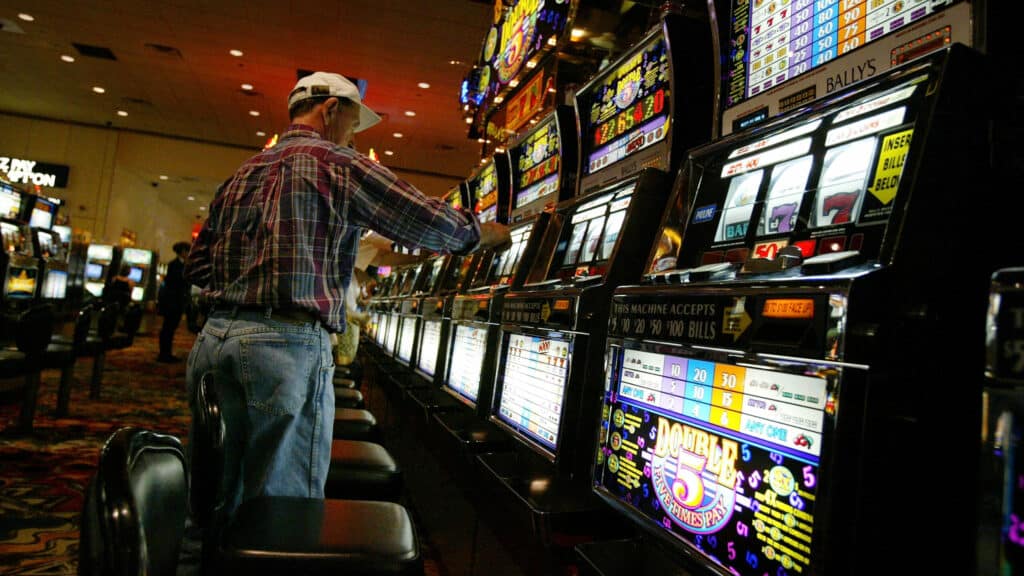The advent of the digital age has revolutionized numerous industries, and the world of casinos is no exception. With the rise of online gambling platforms, the traditional brick-and-mortar casino culture has undergone a remarkable transformation.
In this article, we will explore the evolution of casino culture in the digital age, from the early days of virtual casinos to the immersive experiences offered by cutting-edge technologies. Join us as we delve into the dynamic shifts, opportunities, and challenges faced by the industry as it embraces the virtual realm.
The Emergence of Online Casinos:
The journey of casino culture in the digital age began with the emergence of online casinos. As technology advanced, these platforms offered convenient access to a wide range of casino games from the comfort of one’s home.
Players no longer needed to travel to physical casinos; instead, they could experience the thrill of gambling through their computers or mobile devices. This new accessibility expanded the reach of casino culture, attracting a broader demographic and introducing a new wave of enthusiasts to the world of gambling.
Changing Social Dynamics:
One notable aspect of the evolution of casino culture in the digital age is the changing social dynamics. Brick-and-mortar casinos have long been social hubs, where players gather, interact, and enjoy the lively atmosphere. With the shift to virtual realms, the social component had to adapt to the online environment. Online casinos introduced features such as live chat, multiplayer games, and virtual communities, allowing players from around the world to connect and engage in real-time.
Moreover, the rise of social media platforms and online forums dedicated to casino culture further strengthened the sense of community among players. Enthusiasts now have spaces to share their experiences, strategies, and even compete in virtual tournaments. The online casino culture has fostered new relationships and connections, transcending geographical boundaries and creating a global community of gamblers.
Technological Advancements and Immersive Experiences:
Technology has played a pivotal role in shaping the evolution of casino culture. Innovations such as virtual reality (VR), augmented reality (AR), and high-definition graphics have transformed the way players engage with casino games. Virtual reality casinos offer an immersive experience, transporting players to virtual gambling environments that mimic the ambiance and aesthetics of real casinos. With VR headsets, players can interact with virtual tables, slot machines, and even socialize with other avatars, providing a remarkably authentic casino experience.
ADVERTISEMENT
Augmented reality has also made its mark in the casino industry, blending virtual elements with the real world. AR technology enables players to overlay digital graphics onto physical environments, bringing casino games to life in a unique and interactive way. Imagine playing blackjack on your living room table, with virtual cards and chips seamlessly integrated into your surroundings.
Furthermore, advancements in high-definition graphics and audio have enhanced the visual and auditory aspects of online casino games. Sophisticated animations, realistic sound effects, and immersive storytelling contribute to a more captivating and engaging gaming experience. The digital age has allowed casino game developers to push the boundaries of creativity, resulting in visually stunning and innovative games that captivate players’ attention.
Regulation and Security Challenges:
As casino culture evolves in the digital age, regulatory and security challenges arise. Governments and regulatory bodies are grappling with the need to adapt gambling regulations to encompass online platforms, ensuring fair play, responsible gambling practices, and protection against fraud.
The dynamic and borderless nature of online casino gambling requires new approaches to regulation and oversight, striking a balance between player protection and fostering a thriving industry.
In terms of security, online casinos face the ongoing challenge of safeguarding player information, securing transactions, and preventing unauthorized access. Encryption technologies, secure payment gateways, and strict identity verification processes are among the measures employed to protect players’ sensitive data and provide a safe gambling environment.
Conclusion:
The evolution of casino culture in the digital age has been marked by a remarkable transformation, shifting from brick-and-mortar establishments to virtual realms. The accessibility, social dynamics, technological advancements, and regulatory challenges have all played significant roles in shaping this evolution.
ADVERTISEMENT
As technology continues to advance, we can anticipate further innovations and new frontiers in the world of online casinos, offering players increasingly immersive and engaging experiences. The digital age has ushered in a new era of casino culture, embracing technology as a catalyst for growth and redefining the way we engage with gambling entertainment.









